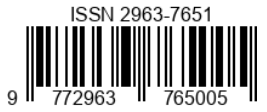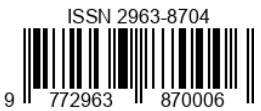The Influence of Education Level On The Behavior of Voter in Pante Ceureumen District, West Aceh Regency in The 2024 Legislative Elections
DOI:
https://doi.org/10.55606/jhpis.v4i1.4988Keywords:
2024 Legislative Elections, Education Level, Voter BehaviorAbstract
This study aims to analyze the effect of education level on voter behavior in Pante Ceureumen District, West Aceh Regency, in the 2024 Legislative Election. Voter behavior is an important factor in determining election results and is influenced by various aspects, one of which is the level of education. The theory in this study is the theory of voter behavior using three approaches, namely the Sociological Approach, Psychological Approach, and rational choice. This research uses a quantitative approach with a survey method, where data is collected through questionnaires distributed to voters in Pante Ceureumen District. The population in the study were people who had the right to vote in the 2024 legislative elections in the pante ceureumen sub-district, which amounted to 8,444 people who were then sampled using the slovin formula with a 5% margin of error, then the results obtained were 382 samples, then the data obtained and analyzed using simple linear regression to determine the effect of education level variables on voter behavior. Based on the Hypothesis Test, the tcount value of the education level is 11.622 with a significance of 0.000. Judging from the tcount value of 11.622> t table 1.960 and a significance value of 0.000 <0.05. So the results showed that there was a significant influence between the level of education and voter behavior in Pante Ceureumen District.
Downloads
References
Bertrand, M., & Mullainathan, S. (2001). Do people mean what they say? Implications for subjective survey data. American Economic Review, 91(2), 67-72. https://doi.org/10.1257/aer.91.2.67
Blais, A. (2000). To Vote or Not to Vote: The Merits and Limits of Rational Choice Theory. University of Pittsburgh Press.
Campbell, A., Converse, P. E., Miller, W. E., & Stokes, D. E. (1960). The American Voter. John Wiley & Sons.
Creswell, J. W. (2009). Qualitative, quantitative, and mixed-methods research. Microbe Magazine, 270. https://doi.org/10.1128/microbe.4.485.1
Diederich, N. (1965). Empirische Wahlforschung. https://doi.org/10.1007/978-3-663-02394-4
Duch, R. M., & Stevenson, R. (2005). Context and the economic vote: A multilevel analysis. Political Analysis, 13(4), 387–409. https://doi.org/10.1093/pan/mpi028
Fiorina, M. P. (1981). Retrospective Voting in American National Elections. Yale University Press.
Giger, N., & Kriesi, H. (2016). The Political Economy of Populism in Europe. Oxford University Press.
Mujani, S., Liddle, R. W., & Ambardi, K. (2012). People's power: An analysis of voting behavior in Indonesia's post-New Order legislative and presidential elections.
Mutz, D. C., American, S., Science, P., & Oct, N. (2013). The consequences of cross-cutting networks for political participation. American Journal of Political Science, 46(4), 838–855. https://doi.org/10.1111/1468-2958.00068
Raymond, C. D., & Worth, R. M. (2017). Explaining voting behavior on free voters: Solely a matter of preference? British Politics, 12(4), 555–564. https://doi.org/10.1057/s41293-016-0023-7
Statistics, PB. (2023). XXXXX In Figures 2022 A. Central Statistics Agency of Batu Bara Regency, 116.
Surbakti, R. (1992). Understanding political science. PT Grasindo.
Syafhendry. (2016). Voter behavior theory and practice. Angewandte Chemie International Edition, 6(11), 951–952.
Teixeira, R. (1992). The Disappearing American Voter. Brookings Institution Press.
Downloads
Published
How to Cite
Issue
Section
License
Copyright (c) 2024 JURNAL HUKUM, POLITIK DAN ILMU SOSIAL

This work is licensed under a Creative Commons Attribution-ShareAlike 4.0 International License.








